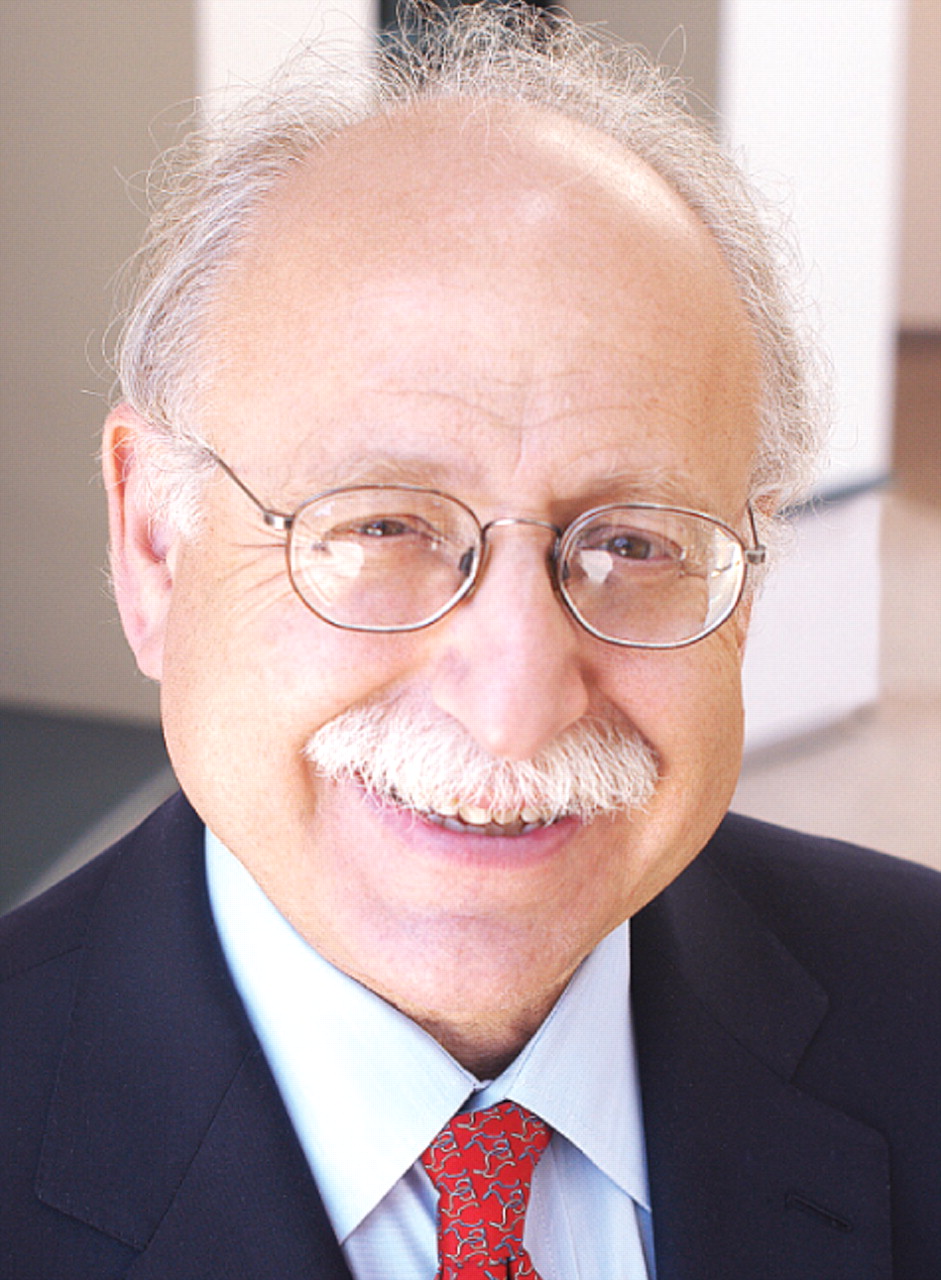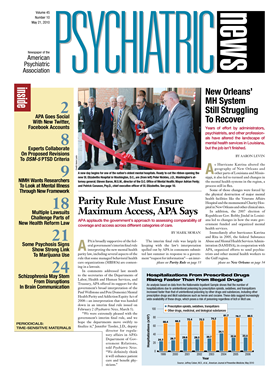This is my final president's column for Psychiatric News. It has been a busy and exciting year, and there is much that we should be proud of with regard to APA and our efforts on behalf of you, our profession, and our patients. The passage of health care reform brings improved access to care as well as opportunities for better coordination of mental health and other medical care.
Let me first thank you for the confidence you bestowed in me as your president. It has been an honor to serve you and our organization, and I am deeply appreciative of the opportunity to have been your president this past year. We have pursued a number of key initiatives, and many have begun to bear fruit. Some are still in process as I write this, and I hope to announce further progress at the Opening Session of our annual meeting on Sunday, May 23.
We set out to restore pride in our profession and specialty, beginning with our major educational meetings. We enhanced the program of the 2009 Institute on Psychiatric Services in New York by broadening the program to include prominent invited speakers and leaders in science and clinical care who addressed us on key topics, as well as special sessions on psychopharmacology and other aspects of clinical care. This institute had the largest attendance ever, and attendees' evaluations were highly positive. In addition, we have reorganized this year's annual meeting with several major tracks that include more invited symposia and presentations by academic leaders from around the world.
We were all gratified by the passage of parity in 2008, the end of the Medicare discriminatory copay for mental health care, and, more recently, health care reform. While there was some opposition to aspects of the reform legislation, access to health care is a pressing need in our society, and in the end so many more people—including people with mental illness—will be able to get coverage for both mental health and other medical care. Our Government Relations leaders and staff deserve much credit for their work over the last decade.
Dr. Sid Weissman led a blue-ribbon work group to develop a Code of Conduct for dealing with outside groups, including industry. The code covers both APA and its members when acting in any capacity on behalf of APA. The code includes six main passages that were approved unanimously last month by the Board (Psychiatric News will give a full report in a future issue). The code is well reasoned and well balanced; it does not do away with working with industry but provides thoughtful guidelines on what the key requirements are in such relationships. The work group proposed and the Board approved the creation of the Disclosure/Conflict of Interest Committee under the Board of Trustees, and the chair will be the next secretary of the Association, Dr. Roger Peele. He and his committee will work to fill in key details on how the committee will function.
DSM-5 is chugging along. The posting of the proposed changes on the DSM-5 Web site attracted over 10,000 comments and millions of hits with comments coming from professionals and the public worldwide. Currently Dr. David Kupfer, DSM-5 task force chair, and the work groups are reviewing the comments and preparing for field trials. This process is unprecedented in its transparency and openness. Consequently, we have spent a fair amount of time responding to critics—most outside the mental health arena. It has really struck me that our attempts over the years to make psychiatry accessible by using common English has some drawbacks. Everyone has emotions, and in combination with a superficial understanding of emotional processing in everyday life or the media with our intelligible descriptions, many lay persons think they understand psychiatry. Having been in the specialty for 40 years, I can say I am only part of the way there to understanding emotions and psychopathology. For others to trivialize what we do or the suffering of our patients is something we must fight against. One thing we ought to consider is using more technical language. Our cardiology colleagues don't talk about heart attacks but use the term myocardial infarction. Hematologists are not attacked for including leukemia in their nomenclature, and they wouldn't think of giving it up for “way too many white cells disorder” (WTMWCD)! Why shouldn't we follow their lead? To my view, bulimia would be a better term than binge eating disorder. The latter was attacked by a prominent psychiatric critic as suggesting he could be diagnosed with the disorder after a heavy Thanksgiving dinner. Our language should indicate the severity of the possible impairment. Similarly, temper dysregulation in children sounds too much like temper tantrums. They are not the same, but the use of the language is problematic. We need to be more serious about our terminology. In the end, we will get it right.
We all spent a great deal of time and effort on managing the finances of the organization this past year, and we were surprised and pleased that in the end we had a surplus of $1.4 million when we had feared a loss of up to $1 million based on a decrease in overall revenues of some $8 million. We continue to prioritize and monitor expenses carefully. Thanks to the leadership and hard work of our medical director, Dr. Jay Scully, and CFO Dr. Terri Swetnam, as well as our immediate past President, Dr. Nada Stotland; Dr. Frank Brown, our Finance Committee chair; Dr. David Fassler, our secretary/treasurer; and our entire Board of Trustees, APA is in good shape financially.
In my previous column, I mentioned our overall reorganization plan. It is also progressing, and I hope I can announce more at the annual meeting; if not, my able successor—Dr. Carol Bernstein—will have some news later this summer. The reorganization will make us more efficient and effective in so many ways.
Last, let me thank the members of our Assembly and Board who work so hard on behalf of our Association. They are truly dedicated.
Again, my sincere thanks and appreciation to all of you for bestowing on me the honor of serving as your president. I hope I have made a lasting contribution to making both our specialty and APA ever stronger.
If you are reading this column while attending APA's annual meeting in New Orleans, I look forward to seeing you there.


